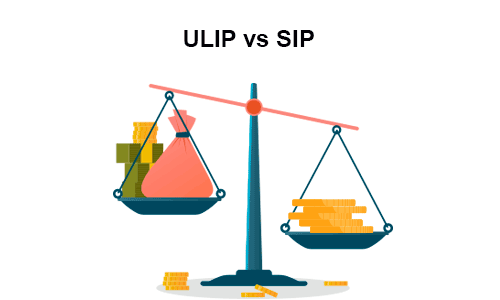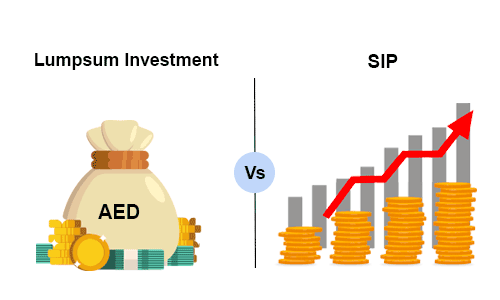How to Invest in Mutual Funds from UAE
Many Indians in Dubai, Abu Dhabi, or Sharjah dream of building wealth through Indian stocks and mutual funds. The good news? It’s legal and easier than you think. With the right bank account, some simple documents, and a clear understanding of rules, you can invest in India from UAE without flying ...read more
Can NRIs Invest in India from UAE?
Yes, NRIs living in the UAE can legally invest in Indian mutual funds, stocks, and other assets under RBI and FEMA (Foreign Exchange Management Act) regulations.
You don’t need special permission or an Indian address. You only need —
- Valid NRI status (living abroad for 182+ days in a financial year)
- PAN card for tax purposes
- NRE or NRO bank account in India
- Completed KYC verification
Most investment platforms now support video KYC, allowing you to complete everything digitally from the UAE. So, if you’re wondering “Can I invest in India from UAE?”, the answer is a big yes. You just need to follow a few simple steps.
Compare & Invest in Best Investment Plans in UAE -
Some of the best Investment quotes in UAE & Dubai are:





Why are More NRIs Investing in India from the UAE?
- Attractive returns: Indian equity funds have delivered around 12–14% CAGR over 15 years
- Diversification: Earn and spend in AED but grow wealth in INR, balancing currency exposure
- Simple repatriation: With proper bank setup, you can freely move funds between India and the UAE
Can NRIs Invest in Mutual Funds in India? |
|---|
| Yes, NRIs can invest in Indian mutual funds under the regulations set by the Foreign Exchange Management Act (FEMA). However, the investment must be made in Indian Rupees (INR) through specific types of bank accounts — NRE or NRO. |
Ways to Invest in India from UAE
Here’s how to invest in Indian mutual funds from UAE —
Step 1: Open the Right Indian Bank Account
To start investing, you must have one of these accounts in India —
1. NRE (Non-Resident External) Account
- Funded with foreign income (like your UAE salary)
- Fully repatriable (you can bring back your money to the UAE anytime)
- Interest is tax-free in India
- Best suited for investing in Indian mutual funds or stocks
2. NRO (Non-Resident Ordinary) Account
- Used for managing income earned in India (like rent or pension)
- Repatriation limited to USD 1 million per year
- Interest is taxable in India
👉 Tip: If you’re planning to send your UAE earnings to invest in India, open an NRE account. It keeps your investments tax-efficient and easy to transfer back.
Step 2: Get a PAN Card
A Permanent Account Number (PAN) is mandatory for any investment in India.
If you don’t already have one, apply online through the NSDL website. You’ll need —
- A copy of your passport
- UAE address proof (Emirates ID or utility bill)
- Passport-size photograph
Once approved, you’ll use your PAN for all mutual fund and stock transactions.
Step 3: Complete Your KYC
KYC (Know Your Customer) is a simple identity verification process required by the Securities and Exchange Board of India (SEBI). You can complete it online via video KYC verification or offline through Indian banks or fund houses.
You’ll need —
- Passport copy
- PAN card
- UAE visa and address proof
- NRE/NRO bank account details
- A recent photograph
Once verified, you’re officially ready to invest.
Step 4: Choose Where to Invest
Now that your accounts and KYC are ready, it’s time to decide how and where you’ll invest.
A. Mutual Funds
If you’re looking for long-term, low-effort growth, mutual funds are perfect. They are managed by experts and help you diversify your portfolio.
You can invest in —
- Equity Mutual Funds (high returns, high risk)
- Debt Mutual Funds (steady returns, low risk)
- Hybrid Funds (mix of both)
There are various platforms that make it easy to buy mutual funds in UAE and monitor them from your phone.
B. Indian Stock Market
If you want to buy shares directly, open a demat and trading account linked to your NRE/NRO account under the Portfolio Investment Scheme (PIS).
Popular brokers: Zerodha, ICICI Direct, HDFC Securities, Axis Direct.
Step 5: Understand FEMA and Repatriation Rules
FEMA governs how NRIs move money in and out of India —
- NRE account: Funds and profits are fully repatriable
- NRO account: You can repatriate up to USD 1 million per financial year
For maximum flexibility, invest via your NRE account whenever possible.
Step 6: Learn About Taxes
Taxation for NRIs is similar to that for residents, except that TDS (Tax Deducted at Source) applies automatically when you redeem. Thanks to the Double Taxation Avoidance Agreement (DTAA) between India and the UAE, you only pay tax in one country — not both.
Step 7: Start a SIP or Lump Sum Investment
Begin small with an SIP (Systematic Investment Plan), from just ₹500 (around AED 21). SIPs help you grow your money steadily and handle market ups and downs better.
Step 8: Track and Rebalance
Keep checking your investments every 3-6 months. You can easily track everything on mutual fund apps or your bank’s investment dashboard. If you’re earning in AED but investing in INR, it’s also smart to check currency exchange trends before big investments
Taxation on Mutual Funds for UAE-Based NRIs |
|---|
| The taxation for NRIs on mutual fund gains is similar to that for Indian residents. However, TDS (Tax Deducted at Source) is applicable on capital gains and dividends for NRIs. |
Latest Mutual Fund Taxation Rules for NRIs (As per Finance Act 2024)
If you want to invest in Indian mutual funds from UAE, it’s crucial to understand how capital gains are taxed. Recent updates from the Finance Act (No. 2), 2024 have changed how short-term and long-term gains are treated, especially for equity and debt-oriented funds.
|
Type of Mutual Fund |
Holding Period |
Tax on Capital Gains (Before July 23, 2024) |
Tax on Capital Gains (On or After July 23, 2024) |
Tax on Capital Gains (On or After April 1, 2025) |
|---|---|---|---|---|
|
Equity-Oriented (Equity allocation ≥ 65%) |
< 12 months |
15%* |
20%* |
20%* |
|
Equity-Oriented (Equity allocation ≥ 65%) |
> 12 months |
10%* (above ₹1 lakh before FY 2024–25); 10%* (above ₹1.25 lakh for FY 2024–25 onwards) |
12.5%* (above ₹1.25 lakh) |
12.5%* (above ₹1.25 lakh) |
|
Debt-Oriented Mutual Fund (Equity allocation < 65% but > 35%) — sold before April 1, 2025 |
Up to 24 months (Short Term) / > 24 months (Long Term) |
As per income tax slab* / 20% + surcharge & cess (with indexation) |
As per income tax slab* / 12.5% + surcharge & cess (without indexation) |
As per income tax slab* / 12.5% + surcharge & cess (without indexation) |
|
Debt-Oriented Mutual Fund (Debt allocation < 65% but > 35%) — sold after April 1, 2025 |
Up to 24 months (Short Term) / > 24 months (Long Term) |
Not applicable |
Not applicable |
As per income tax slab* / 12.5% + surcharge & cess (without indexation) |
|
Specified Mutual Funds (Equity allocation < 35%) — purchased on or after April 1, 2023; sold on or before March 31, 2025 |
Deemed Short-Term (irrespective of holding period) |
As per income tax slab* |
As per income tax slab* |
As per income tax slab* |
|
Specified Mutual Funds (Debt allocation > 65%) — purchased on or after April 1, 2023; sold on or after April 1, 2025 |
Deemed Short-Term (irrespective of the holding period) |
Not applicable |
Not applicable |
As per income tax slab* |
* For equity-oriented funds, TDS applies as per standard rates in India. For debt-oriented funds, TDS applies at the highest tax bracket for all investors.
How Can UAE NRIs Complete the KYC Procedure?
To invest in Indian mutual funds from UAE, NRIs must complete KYC (Know Your Customer) as per SEBI rules.
1. Fill the KYC Form
Submit the KYC form to a SEBI-registered intermediary (broker or fund house). You can send it by post or complete it online through platforms.
2. Submit Documents
Attach these documents —
- Overseas address proof (Emirates ID, utility bill, tenancy contract)
- Recent passport-size photo
- Indian address proof (if available)
- PAN card copy
- Passport copy
3. Get Documents Attested
Have your documents attested by —
- Overseas branches of Indian banks
- Public notary or court official
- Indian Embassy or Consulate in the UAE
4. Verification
Once verified, your status is updated as ‘KYC Verified’ in SEBI’s records. You can then start investing.
💡 Tip: You can also take help from a financial advisor to complete the process quickly and avoid documentation errors.
Wrapping Up
Investing in Indian mutual funds or stocks from the UAE is easy when you know the right steps. Whether you want to grow your money in Indian markets or diversify your savings globally, the process is 100% legal and fully digital
Frequently Asked Questions
Can I invest in Indian stocks from the UAE?
Yes, NRIs in the UAE can invest in Indian company shares through the Portfolio Investment Scheme (PIS). It allows investments on a repatriation or non-repatriation basis via an NRE or NRO account.
How can foreigners invest in Indian mutual funds?
NRIs can invest in Indian mutual funds by following FEMA and SEBI regulations and completing KYC with overseas address proof. Compliance with FATCA/CRS norms is also necessary for global tax reporting.
What is the 7/5/3-1 rule in mutual funds?
The 7-5-3-1 rule is an SIP investing guide. Hold for 7 years, diversify across 5 fund types, manage 3 emotions (greed, fear, impatience), and increase SIPs by 1 unit each year to build long-term wealth.
What is the golden rule of mutual funds?
The 75-5-10 rule ensures diversification. Invest 75% in other issuers’ securities, not more than 5% in one company, and hold under 10% of any company’s voting stock.

More From Investment
- Recents Articles
- Popular Articles






.jpg)
.jpg)











.jpg)
.jpg)
















